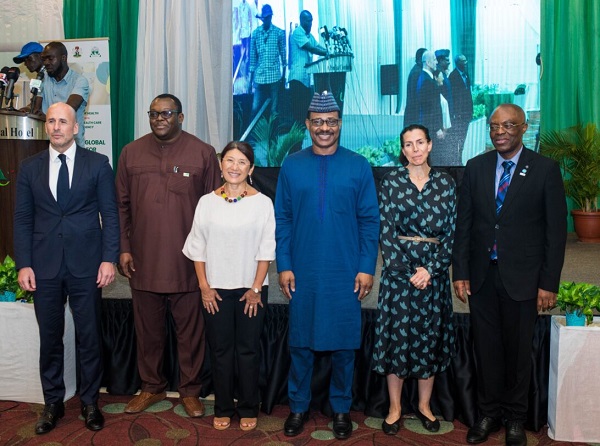
The Nigerian government has received a $9.3 million (Canadian dollars) grant from Canada’s Global Initiative for Vaccine Equity (CanGIVE) to enhance COVID-19 vaccine delivery and strengthen the broader health system in the country.
During the launch of CanGIVE in Nigeria, the Canadian High Commissioner, Amb. Jamie Christoff, announced that Nigeria and six other countries will benefit from the global initiative which amounts to CAD$317 million.
Christoff emphasised that as the world moves beyond the emergency response to the pandemic, continued access to COVID-19 vaccines, tests and treatments remains critical, particularly for high-risk groups.
Under CanGIVE, the World Health Organisation (WHO) will implement projects in seven countries, with Nigeria receiving the largest share of the funding. Nigeria was also one of the first countries to receive COVID-19 vaccines from Canada in September 2021.
Christoff highlighted the historical institutional relationship between Canada and Nigeria, emphasising Canada’s commitment to supporting Nigeria in preventing diseases and protecting those most at risk.
He explained that countries require support to integrate COVID-19 vaccination into existing immunisation programmes and primary health services, thereby strengthening the overall health system and reversing the decline in routine immunisation caused by the pandemic.
The director-general of the Nigeria Centre for Disease Control (NCDC), Dr. Ifedayo Adetifa, announced that the agency would receive a $1.4 million Canadian grant to strengthen the broader health system. Adetifa stressed the importance of surveillance in monitoring and evaluating emerging patterns and trends of diseases. He expressed the agency’s gratitude for the grant, highlighting the crucial role of surveillance in disease prevention and management.
The executive director of the National Primary Health Care Development Agency (NPHCDA), Dr. Faisal Shuaib acknowledged the progress made by Nigeria in COVID-19 vaccination but recognised the need for further efforts. He explained that several states have primary series coverage below 70 per cent and that booster doses account for just over 20 per cent of vaccinations. The grant will target states with lower performance and prioritise high-priority populations. It will be implemented through the WHO and contribute to strengthening the health system, addressing service delivery inequities, and promoting gender equality at the sub-national level.
The states targeted for implementation include Ondo, Rivers, Kogi, Delta, Ebonyi, Lagos, Akwa-Ibom, Bayelsa, Benue, Ogun, Katsina, Taraba, Anambra, Kebbi and Edo.
Senior technical officer at the Africa CDC Regional Collaborative Centre for West Africa, Ms. Chioma DanNwafor described the CanGIVE grant as timely, commendable and a step in the right direction. She emphasised Africa CDC’s commitment to supporting member states in vaccinating at least 70 per cent of their populations through the Saving Lives and Livelihoods initiative.
Director of disease control and immunisation at the NPHCDA, Dr. Bassey Okposen explained that the two-year grant would support activities implemented by the NCDC and NPHCDA. The funds will be used to improve COVID-19 performance in the targeted states.
As of July 17, 2023, Nigeria has made significant progress in COVID-19 vaccination, with 77,285,627 individuals completing the primary series and 87,838,137 individuals receiving at least one dose of the vaccine. Additionally, 16,011,524 individuals who completed the primary series have received a booster dose.
Head of Mission and representative of WHO Nigeria, Dr. Walter Mulombo acknowledged the country’s achievements but emphasised the need for ongoing work. WHO will continue to provide technical support for preparedness and response, integrating COVID-19 surveillance and response activities into routine health programmes.
The CanGIVE grant aligns with WHO’s roadmap for COVID-19 vaccine use, focusing on improving coverage and uptake among priority populations.
The Canadian government’s commitment to the ACT-Accelerator includes investments in 12 countries, including Nigeria, to ensure equitable access to COVID-19 vaccines and reinforce health systems.
In addition to the CanGIVE grant, WHO has obtained $57 million to increase equitable access to COVID-19 vaccines, reinforce health systems, and deliver gender-equitable immunisation and primary healthcare in seven African countries.

